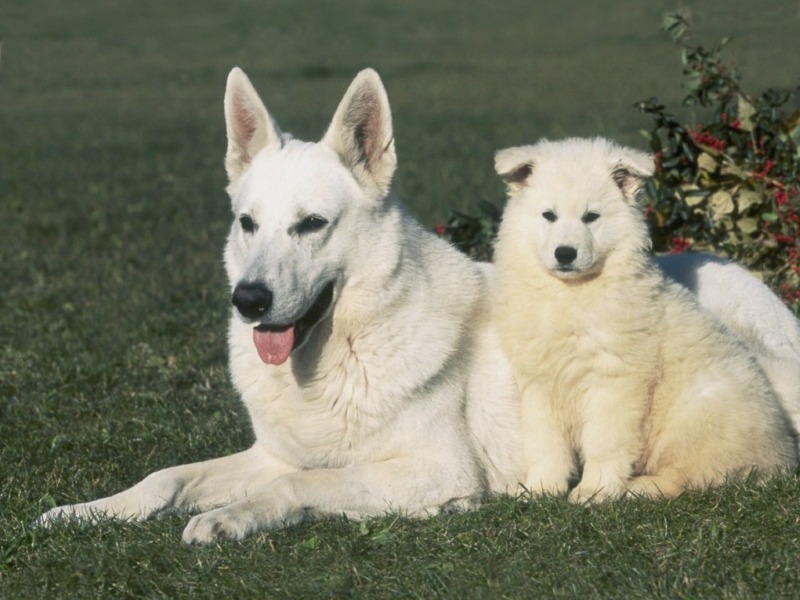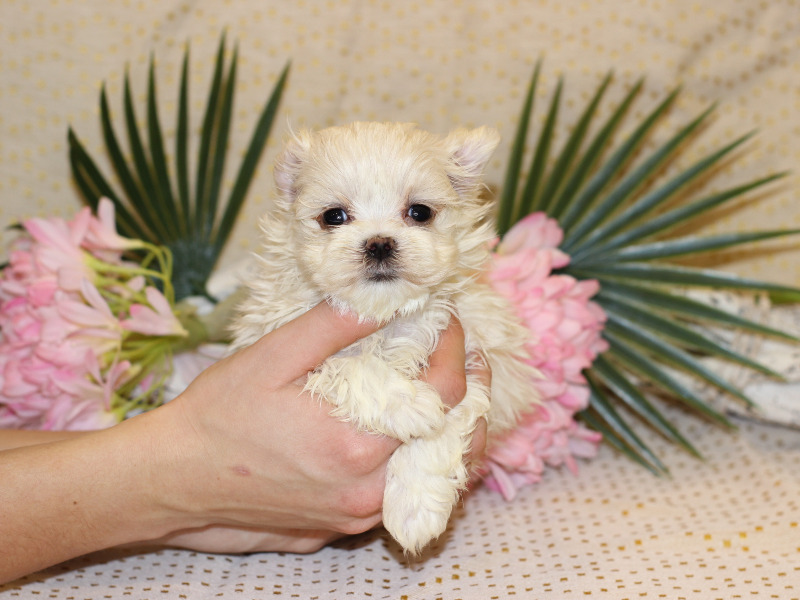Bichon frisé
Welcome to our page dedicated to the breed of dog bichon frisé!
Here, you will find all the useful information about bichon frisé. This descriptive profile will allow you to discover the aspects of this breed. You can notably consult information about the average price, monthly and annual upkeep expenses, their health, name ideas, as well as their official recognition by competent authorities.
Explore this page to discover everything you need to know.
Overall description of the breed
The Bichon Frise is an eye-catching breed of dog with a curly coat and lively eyes. The breed has a rich history stretching back centuries, and is appreciated the world over for its playful, affectionate personality.
The Bichon Frise originated in the Mediterranean and has a long history dating back to ancient times. Its ancestors are thought to be small water dogs that were prized by sailors and traders for their ability to chase rats off ships and bring joy and comfort to crew members. Over time, the Bichon Frise gained popularity in European royal courts and became a favourite of aristocrats and kings.
The Bichon Frise is a small dog with a well-proportioned body and a graceful silhouette. It has a round head with dark, expressive eyes and floppy ears covered in curls. Their most distinctive feature is their coat, which is made up of white curls, giving them a soft, elegant appearance. Despite its abundant coat, the Bichon Frise generally does not shed much, making it a popular breed for people with dog allergies.
The Bichon Frise is renowned for its gentle, playful, affectionate character. They are very sociable and get on well with children, other dogs and pets. The Bichon Frise is also intelligent and easy to train, making it an excellent companion dog for families. They love to be surrounded by loved ones and can sometimes show signs of anxiety if left alone for long periods.
The average weight of the Bichon Frise is between 3 and 5 kg (6.6 and 11 lb). Its height at the withers is around 23 to 30 cm (9 to 12 inches). Of course, these figures are averages and may vary slightly depending on the individual.
The Bichon Frise's founding breed club is the Bichon Frise Club of America (BFCA) in the United States. The breed standard, which describes the physical and behavioural characteristics sought in the Bichon Frise, was established in 1964 to guide the breeding and preservation of the breed.
The Bichon Frise is recognised by the FCI. The breed was officially recognised on 28 October 1959 and the official standard in force was published on 4 April 2016. It is listed in Group 9 - Companion and Toy Dogs.
The Bichon Frise is a charming dog with a royal past, loved for its curly coat and affectionate personality. Its fascinating history and elegant appearance make it an ideal companion for many homes around the world. With its recognition by the FCI, the Bichon Frise is now officially recognised on the international stage. If you're looking for a small dog full of joy and affection, the Bichon Frise could be the ideal companion for you.
Awareness of acquiring an animal
Each animal is a sensitive being, deserving love, attention and care.
When you choose to adopt an animal, you take on the responsibility of ensuring its health and well-being throughout its life.
To learn more about animal welfare, we invite you to consult our FAQ by clicking the button below:
Origins
The Bichon Frisé is an ancient breed that finds its origins in the Mediterranean basin. Probably descending from Barbet-type dogs, it is closely related to the Poodle and other bichon breeds like the Maltese. Spanish sailors are said to have used these small white dogs as currency during their travels, contributing to their spread around the world.
History
Over the centuries, the Bichon Frisé has become particularly popular among European royal courts during the Middle Ages, especially in France under the reign of François I and in Spain under Philip II. In the 19th century, the breed experienced a decline before regaining popularity in the 20th century, when French and Belgian breeders undertook to standardize its appearance and promote its qualities.
Standard
The standard of the Bichon Frisé breed, according to the International Canine Federation (FCI), describes a small and sturdy dog with a lively and alert expression. The coat must be white, but shades of cream are allowed around the ears. The fur is long, curly, and very soft, requiring regular maintenance to prevent knots.
Physical characteristics
The Bichon Frisé is a small dog, measuring between 23 and 30 centimeters at the withers for a weight ranging between 3 and 5 kilograms. Its head is round with dark and lively eyes, and its ears are covered with long, flowing hair. Its tail is carried gracefully on its back, creating a harmonious and balanced silhouette.
Character
The temperament of the Bichon Frise is cheerful and playful. It is an ideal companion for those looking for an affectionate and sociable dog. Very adaptable, it can thrive in both an apartment and a house with a garden, as long as its family gives it attention and affection.
Life expectancy
The life expectancy of a Bichon Frise is usually 12 to 15 years. This longevity is influenced by the quality of care provided, particularly in terms of nutrition and veterinary follow-up.
Exercise and activity needs
Despite its small size, the Bichon Frisé needs regular exercise to maintain its physical and mental health. Daily walks and play sessions help it expend its energy and stay in shape.
Recommended diet
A balanced diet specially formulated for small dogs is recommended for the Bichon Frise. It is important to monitor their diet to prevent obesity, which is common in small sedentary dogs.
Training and obedience
The Bichon Frise is intelligent and learns quickly, but can be stubborn. Positive training from a young age is crucial for developing a balanced and sociable behavior. Rewards and encouragement are effective tools for their education.
Behavior with children
The Bichon Frisé is generally good with children, especially if it has been accustomed from a young age to interact with them. Its gentle and affectionate nature makes it a loyal friend for the young members of the family.
Compatibility with Other Animals
This little dog gets along well with other pets, especially other dogs and cats, especially if raised with them. Its sociable nature makes it easy to integrate into homes with multiple animals.
Grooming needs
The Bichon Frisé requires regular grooming to maintain its coat in good health and free of tangles. Regular brushing and monthly baths are recommended to preserve the natural beauty of its curly fur.
Health
The Bichon Frise is known for its robustness and overall good health. However, like all breeds, it can be prone to certain medical conditions. Owners should be especially vigilant about skin problems, allergies, and eye diseases. Regular visits to the veterinarian, a balanced diet, and exercise help keep this happy companion in top shape.
Average price
Acquiring a Bichon Frisé can represent a financial investment. On average, the price of a quality puppy with pedigree ranges between 800 and 1500 euros, or even more depending on the bloodline and reputation of the breeder. It is crucial to choose a reputable and quality breeder to ensure the health and purity of the breed.
Expenses
Annual expenses for a Bichon Frisé vary depending on many factors, including food, veterinary care, toys, and accessories. On average, owners can expect to spend between 500 and 1000 euros (or dollars) per year on their dog's regular expenses.
Name ideas
Each name given to a Bichon Frisé tells a unique story, capturing the essence and personality of this charming dog. Take for example "Coton", a name that evokes the softness and whiteness of the characteristic coat of the breed.
For a female, "Luna" carries with her the grace and beauty of the moon, in perfect harmony with the charm of these little companions. "Félix" celebrates the joy and vivacity that this dog brings to his home, his name meaning "happy" in Latin. An Italian name like "Bianca" highlights the distinctive color of this breed, baptizing it with the word "white." "Oliver", meaning "peace", reflects the balanced and loving temperament of the Bichon Frisé. "Angèle", evoking innocence and sweetness, highlights the angelic nature of these dogs.
For a male, "Maximus", a Latin name meaning "the greatest", celebrates his lively and determined personality. "Perle" pays tribute to the rarity and preciousness of this breed, evoking its elegance and beauty. "Coco", a playful and cheerful name, corresponds to the overflowing energy of these little four-legged friends. "Nina", of Spanish origin, meaning "little girl", is perfect for a female Bichon Frisé, symbolizing the tenderness and complicity she brings to her surroundings. Each name is a label of love and complicity, binding the dog and its human companion in a unique relationship.
Legislation and regulation
In most countries, the Bichon Frisé is not subject to any specific restrictions. However, owners must comply with local laws regarding dog ownership and responsibility, such as vaccination, identification, and keeping the dog on a leash in public places.
Official recognition
The Bichon Frisé is officially recognized by the Fédération Cynologique Internationale (FCI), as well as other reputable registries around the world. In its country of origin, the official breed club is the French Bichon Frisé Club.
Pedigrees
Pedigrees are commonly available for Bichon Frises from reputable lines. Serious breeders provide official documents attesting to the pedigree and purity of the breed of their puppies.
Destination and usage
The Bichon Frisé is primarily appreciated as a companion animal. Its joyful temperament, intelligence, and friendly character make it an ideal companion for families, the elderly, and anyone looking for an affectionate and adaptable dog.
Prohibitions
No specific restrictions regarding the Bichon Frisé are generally reported in countries or regions around the world. However, it is always recommended to check local regulations before acquiring this breed, especially when traveling or moving abroad.
Breeders of Bichon frisé
Want to see more breeders of Bichon frisé?
Check out the page of our directory listing all breeders of Bichon friséClassified Ads of bichon frisé
No of bichon frisé classified ads are available on Preeders.
If you’re a breeder, sign up for free now and be the first to post a classified ad
Breed clubs of bichon frisé
No of bichon frisé breed clubs are currently registered on Preeders.
If you would like to highlight your breed club, sign up for free now and be the first to appear on this page.




